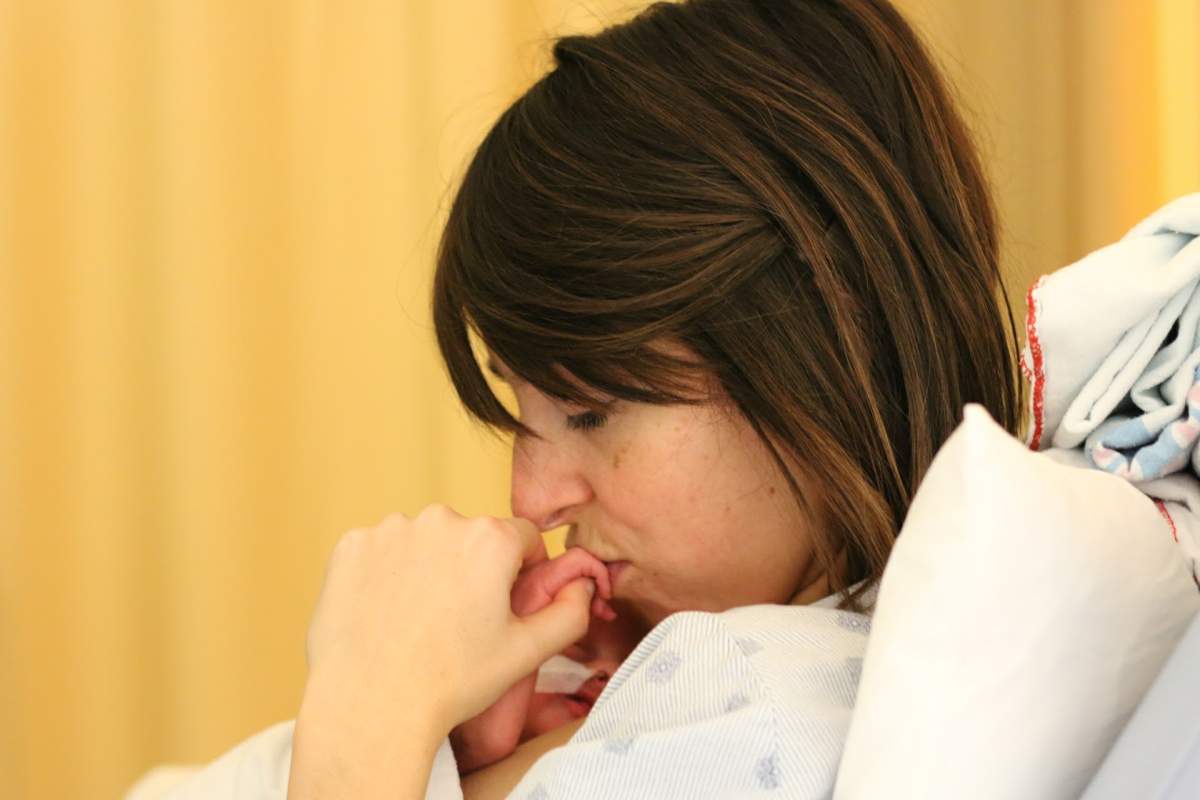A pediatric nurse in Halifax dreamed of becoming a mother all her life and believed that this was how she’s going to be happy.

But that dream suffered a blow when Joanne Gallant miscarried twins in 2015 due to a rare condition called biconuate uterus, also known as a heart-shaped womb because it actually looks like a heart.
“I had to go for emergency surgery because one had been implanted in my fallopian tube,” says Gallant. “And so the following surgery, that’s when they told me that I had kind of this misshapen, malformed uterus. I had no idea for almost 30 years.”
Without a cure available for this medical condition, motherhood continued to elude Gallant who went on to lose five babies until she prematurely gave birth to her son, Theodore.
“I didn’t really think that he was going to survive. His birth was pretty traumatic, too. He was born two months earlier and we spent a month in the ICU and I’m a pediatric nurse. And so I kind of know maybe too much about how things can go badly,” says Gallant.
When she brought him home, he stopped breathing many times, so for at least a year she experienced post-partum anxiety and post-traumatic stress.
“Infertility in general and all of the miscarriages, I knew there was nothing I could do to stop or control any of it,” says Gallant who turned to writing as a way to process her grief and the anxiety that she felt after giving birth.
She ended up publishing a memoir called ‘A Womb in the Shape of a Heart’ to tell her story of miscarriage and motherhood.
“Each loss is unique. What I did initially was I kind of raced from pregnancy to pregnancy, thinking that if I got pregnant, I can move forward … But that halted the grieving process for me. I had three miscarriages in one year, which is a lot, and I had to take a pause after,” Gallant says.

Get daily National news
She hadn’t been able to grieve the loss of her babies individually, and writing was starting to help her come to terms with that.
“I was very surprised at how angry I was. That was a really big part of grief … and it’s kind of scary to experience the level of anger and kind of despair I felt. It was very kind of animal.”
Since the publication of her book in September, Gallant says she has felt very comforted with people reaching out and telling her that they’ve had a similar experience with pregnancy and motherhood.
“It’s been really wonderful to hear from other people because I felt so alone. And so it’s almost like a gift to my past self to hear from these people. As far as you know, we’re in this dark place alone, but there are so many of us down there. We just didn’t know it,” she says.

On Instagram, she says you’d see beautiful pregnancies and everything’s happy, but people wouldn’t necessarily see the difficulties that might come with trying to get pregnant.
“It feels that to be this quote-unquote real mother, you had to have a baby a year after you got married, and two years later, you had your second baby and everything was fine,” Gallant says.
“And then to experience it in the way that I did was very jarring … and feeling that I’m not having that experience I should be having.”
But what she has experienced has made her feel she has “seen behind the curtain where that’s not at all true.” Now the definition of motherhood has expanded and grown for Gallant.
READ MORE: Women share experiences for Pregnancy and Infant Loss Awareness Month
“I have friends who I consider mothers who don’t have children and who are nurturing,” Gallant says. “We’ve had it confined to a mom with kids for so long, and I think that to mother someone, it’s just an act. It’s a verb.”
Theodore is almost five years old now, but Gallant says even now she can get very stressed and goes to check on him at night.
“I feel that all my miscarriages and the babies I’ve lost have made me love my son better than I would have without having gone through that. So I think it made me a different mom, and I care for him in different ways than I would have. And he’s just a joy.”









Comments